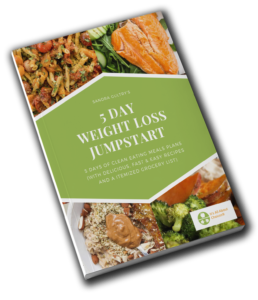Vitamin D deficiency is more common than you might think. Globally, studies suggest roughly one billion¹ people are vitamin D deficient.
- 42% of adults are deficient
- 50% of children aged between one and five and 70% of children aged between six and 11 have low vitamin D stores
The statistics are even higher for people with dark skin as well as premenopausal women and those with poor nutrition habits.
- Nearly 63% of Hispanic adults
- 82% of African American adults are vitamin D deficient
Despite high rates, many people don’t know they are vitamin D deficient.
Read more as I give 3 insightful tips to raise your Vitamin D I.Q., build healthier eating habits, reduce risk of chronic disease, and lose weight!
What is Vitamin D? Why do we need it?
Vitamin D is a fat-soluble vitamin, meaning that it is absorbed along with fats in the diet and is stored in the body’s fatty tissues.
The primary source of Vitamin D is the sun’s invisible UVB rays.
Vitamin D is an important vitamin because it promotes calcium absorption in the gut and maintains adequate blood levels of calcium and phosphate. Without enough vitamin D, bones can become thin, brittle, or misshapen.
Vitamin D has other functions in the body too! Muscles need it to move, nerves need it to carry messages between the brain and every part of the body, and the immune system needs vitamin D to help fight off bacteria and viruses
Signs of being Vitamin D Deficient
The only way to truly know if you’re vitamin D deficient is to speak to your doctor and have blood work done. Your doctor will likely check other nutrient deficiencies and irregularities too. This will give you a greater understanding of your overall health.
There are some common symptoms, many mimic other illnesses, and deficiencies. These include:
- Fatigue
- Muscle weakness, aches, and cramps
- Mood changes
- Joint pain (particularly in your back)
- Bone loss
Low vitamin D levels are associated with an
- increased risk of respiratory diseases,
- including tuberculosis, asthma, and chronic obstructive pulmonary disease (COPD),
- as well as viral and bacterial respiratory infections
Vitamin D is necessary for the proper functioning of your immune system, which is your body’s first line of defense against infection and disease.
A deficiency in this nutrient may compromise immune response and increase your risk of infection and disease.
What are some good food sources of Vitamin D?
Few foods contain vitamin D naturally. Because of this, some foods are fortified. This means that vitamin D has been added:
- salmon
- sardines
- egg yolk
- shrimp
- milk (fortified)
- cereal (fortified)
- yogurt (fortified)
- orange juice (fortified)
It is difficult to get enough vitamin D each day through sun exposure and food alone, so this is a good example of where taking a supplement is necessary
Summary
The health of your immune system depends on the health stomach (hint: think nutrition).
You should aim to get most of your vitamin D from food naturally and both fortified food and beverages.
Foods contain other vitamins, minerals, and dietary fiber that contribute to good health.
In some cases, dietary supplements can provide vitamin D that would otherwise be consumed in less-than-recommended amounts.
If you need a recommendation for a good multi vitamin-mineral made with hypoallergenic, vegetarian ingredients, and contains a good amount of vitamin D to sustain normal levels, DM me.
Sandra Recommends
Do you feel like you’ve tried every diet created?
After trying many diets you’re likely left feeling frustrated and disappointed because you can’t keep the weight off for good.
It can be incredibly tiresome to always feel like you’re starting over without any real change in your body.
If you’re struggling with weight loss or confused/overwhelmed about what to eat…
I’ve got you covered!
That’s why I created this 5-Day meal plan. In this easy-to-follow guide, you’ll experience:
- Surge of energy levels throughout the day (think 2-4pm typically crash n burn)
- Benefits of eating satisfying meals that will keep cravings at bay
- Waking up feeling refreshed, energized, and ready to take on the day
An added bonus is you will “Jump start Your Weight Loss & Boost Your Energy Levels”!
Click [HERE] to grab your free copy!
Sandra Recommends
Listen to the FB LIVE Replay for more insightful information on this BLOG.



